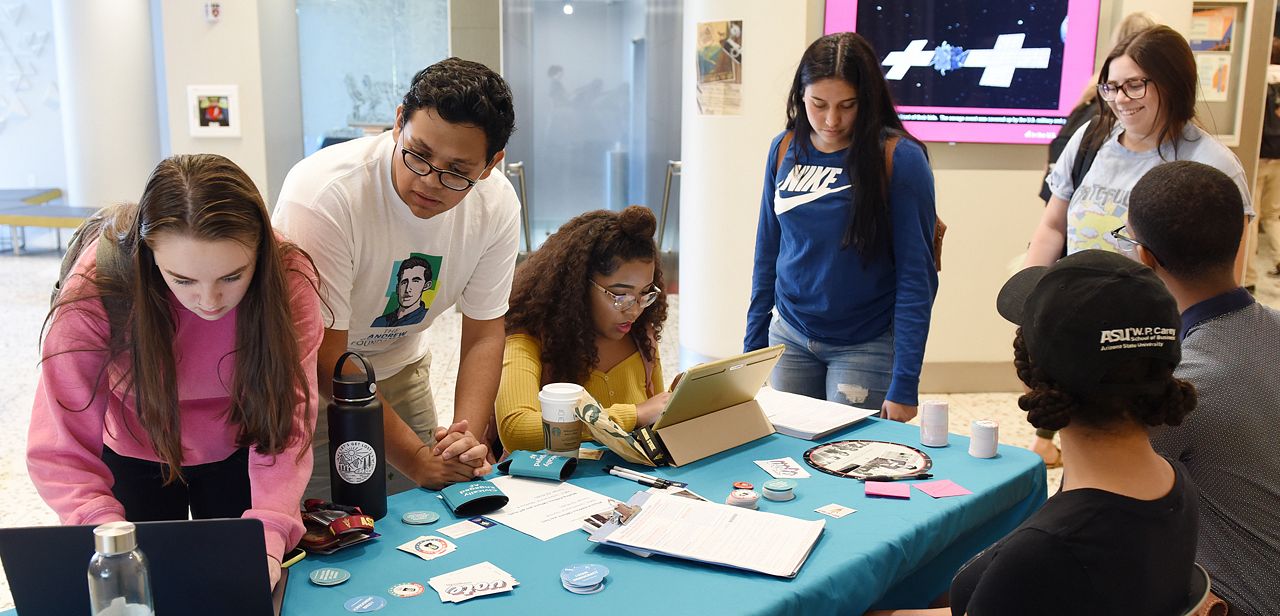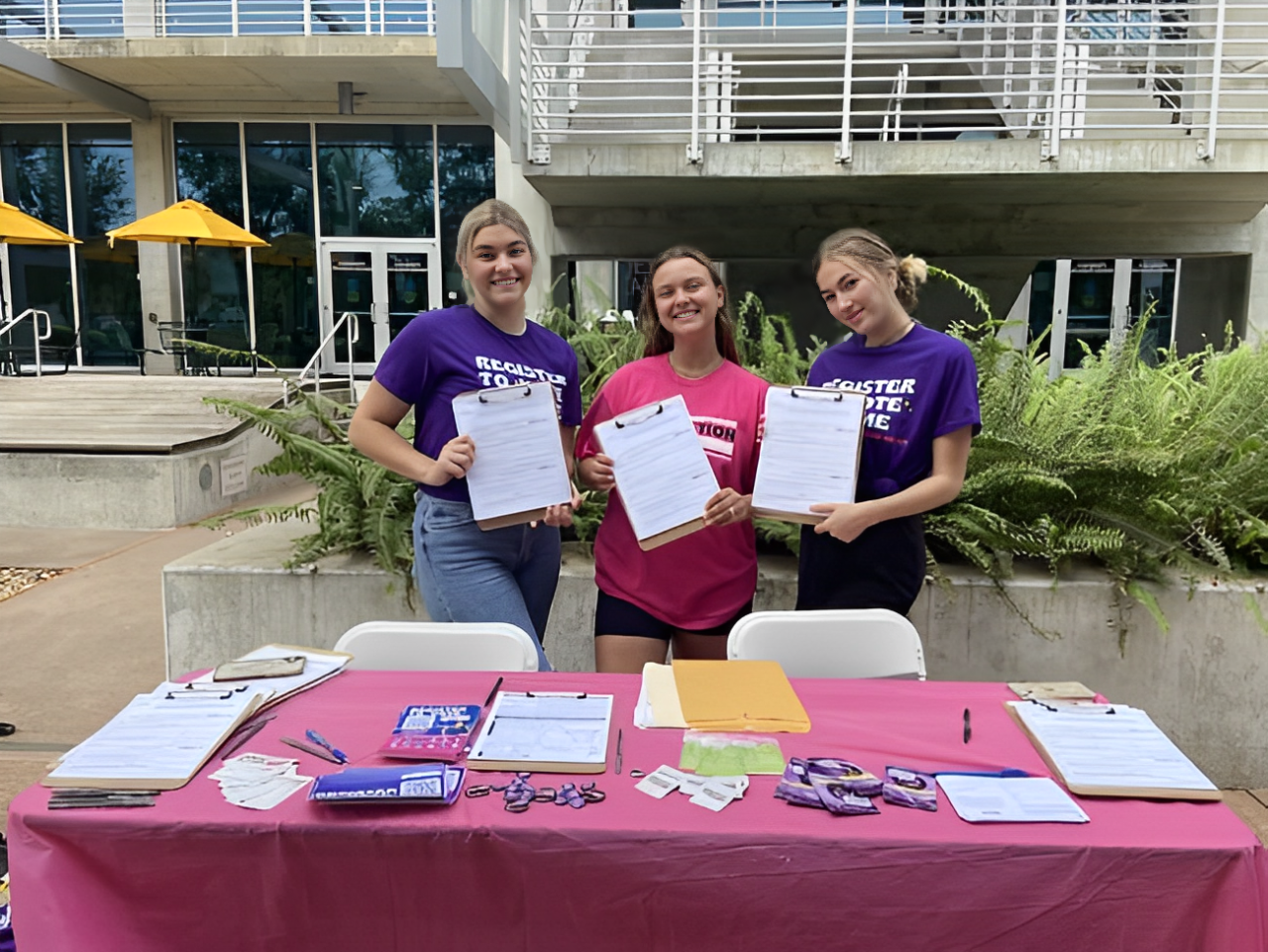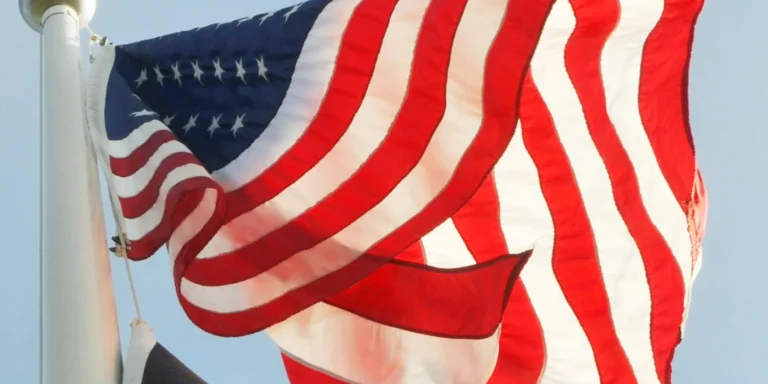A Florida law that took effect last July has significantly curtailed traditional paper-and-pen voter registration activities on the state’s college campuses. According to students and voter registration organizations, the legislation’s impact has been profound, with many groups ceasing their voter registration efforts altogether.
This has raised concerns among voting rights advocates about the effectiveness of the remaining methods of encouraging student voter registration.
The legislation in question, Senate Bill 7050, has introduced stringent restrictions and potential penalties for third-party voter registration organizations (3PVROs). This term encompasses any entity other than a state or local elections board that engages in voter registration activities.
Under the new law, these organizations must re-register as a 3PVRO every election cycle and provide receipts to anyone they register to vote. Additionally, the window for turning in registration applications has been shortened from 14 days to 10, and the maximum penalty for late submissions has been increased to $2,500 per application.
Alexis Hobbs, a student at the University of South Florida at St. Petersburg and president of the campus’s Planned Parenthood Generation Action chapter, expressed her dismay at the situation.
“Most college clubs have just completely stopped doing voter registration,” Hobbs said. “It’s extremely sad because there are smaller communities on campus that could have been a very productive part of registration efforts. But now, they’re just too afraid to even talk about how to get registered.”
The law also restricts who can handle and collect registration forms, making it illegal for individuals convicted of felonies to register voters. However, a federal district court ruled that the provision was unconstitutional and barred noncitizens from handling forms.
The law’s stringent requirements and hefty penalties have created a chilling effect. Some organizations have ceased all voter registration activities out of fear of incurring large fines.
Anna Eskamani, a Democratic state representative who founded the voting rights advocacy organization People Power for Florida, highlighted the aggressive nature of the state’s enforcement.
“They are worried about that risk,” Eskamani said. “The state is just so aggressive. In fact, [we] and others have been fined … it’s hard to fight back because we’re up against the state of Florida.”
Despite these challenges, some groups have adapted their strategies to continue promoting voter registration. People Power, for instance, has partnered with student organizations to hold voter registration events on campuses. However, the costs associated with training volunteers and staff members have increased, as have attorneys’ fees.
For a period after SB 7050 went into effect, People Power refrained from allowing volunteers to handle physical voter registration forms, though they later relaxed this policy.

Connor Effrain, president of the University of Florida College Democrats, noted that voter registration on campuses was already challenging before SB 7050. As a freshman, Effrain recalled being advised against taking a voter registration form off campus to avoid potential repercussions.
“Even back then, you’d have kids going around much more actively on campus to hunt down people who want to register to vote in person,” Effrain said. However, since the law took effect, several organizations that previously registered voters on UF’s campus have ceased these activities entirely.
To mitigate the risks associated with paper forms, some third-party groups have shifted to using QR codes that direct individuals to online registration forms. While this method avoids the risk of fines, it is perceived as less effective than assisting someone in filling out a paper form in real-time. Additionally, Florida’s online voter registration form requires a Florida driver’s license or ID number, which adds another layer of difficulty.
The League of Women Voters, one of the largest voting rights organizations in the nation, has altered its tactics to avoid liability. Volunteers at its five campus chapters in Florida have been instructed not to register people using paper forms. Instead, they now show individuals how to register online or provide blank physical voter registration applications with instructions on how to mail or hand-deliver them.
Cecile Scoon, co-president of the League of Women Voters of Florida, expressed concern over the effectiveness of these new methods. “In my experience, people are much more likely to register to vote when they fill out the form in the moment as compared to when they walk away planning to do that task later,” Scoon said.
At the University of South Florida, Hobbs continues to register voters on campus via paper forms through her work with People Power. However, she has observed other organizations opting for QR codes instead. “Usually, it’s a tabling event, and they just have the QR code and maybe some candy that people can grab. But it’s definitely not as productive as using paper forms,” she said.
The sweeping impact of SB 7050 has extended beyond college campuses, affecting various voter registration groups across the state. The Big Bend Voting Rights Project, for instance, has let its status as a 3PVRO lapse and switched to canvassing neighborhoods to educate residents about how to register to vote rather than signing them up on the spot.
Despite the hurdles, organizations like People Power are determined to continue their voter registration efforts. “We have been really rigorous in the training that we provide for our staff members … so we feel that we have effectively minimized our risk to the point where we are comfortable using paper voter registration forms,” said Allison Minnerly, People Power’s communications director. “We’re going to continue for as long as we can doing voter registration on college campuses.”
Read More:
NYC Drunk Driver in July 4th Crash Has Troubling Criminal Past!
Republican Rep. Victoria Spartz Faces Weapons Charge at Dulles Airport!
Buffalo Man Arrested in Maryland for Elmwood Avenue Shooting!
The full effects of SB 7050 on voter registration in Florida, particularly among college students, are still unfolding. However, the law’s immediate impact has been to significantly disrupt traditional registration efforts, forcing organizations to find new ways to engage young voters and ensure their participation in the democratic process.







+ There are no comments
Add yours